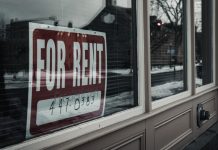Student loan debt has been a particular point of conversation in this election cycle, even though students have been burdened with student loan debt since the 1980s. Factor in students going back to school after the economic slump of 2008, with the mindset that a higher education will help them secure better job prospects – then you have the perfect ingredients for fruitless efforts that only resulted in the current debt crisis.
Alas, some students are unable to pay their student loan debt entirely. There are more than 22 million Americans with student loans, and only 12.5 million of those students are current with loan payments.
Here Are the Facts about Federal Student Loans
College is expensive. The cost of attending college supersedes the rate of inflation. It is so expensive, that students have to use a combination of federal and private loans just to afford it.
70% of bachelor degree holders have some sort of student debt. There is a perceived abundance of job seekers applying for a restricted pool of professional positions, allowing gatekeepers to further expand requirements and make the application process more difficult. In turn, the coveted bachelor degree is quickly losing its economic value in certain fields, with the associate degree almost becoming completely obsolete.
Why Are 43% of Student Loans Not Being Paid Back?
College is so costly, even requiring student loans for in-state universities. It has metamorphosed into an industry of lending predators who seek out those desperate in financing their education.
Some economists also place blame on the financial institutions that lend to these students. In many cases, federal student loans do not have a stringent enough process to vet applications, with students being able to secure financing without proper credit checks.
Some borrowers also prioritize other bills over student loan payments. Not paying your rent or electricity have direct, immediate, and tangible consequences. Not paying your student loans after you’ve earned your degree does not have an immediate impact, or at least not for a little while. Even though consequences may not as direct, there are still very real consequences when students stop paying their student loan. W-2 wages, social security, and federal tax refunds can be garnished. The government can also initiate a lawsuit, with certain instances ending in arrests.
These people who are struggling to make loan payments are then required to deal with lost wages, lost days at work due to possible lawsuits and jail time. These are honest, aspiring college graduates who will then be forced to tip toe around debt and possibly being ensnared by the prison industrial complex that will be more than willing to swallow them whole.
Student Loans Are Reinforcing Income Inequality
Student debt is also retarding economic growth and hemorrhaging any chance of accumulating personal wealth. The ramifications of ravenous student loan debt and invested income is far outpacing the rise in wages. Which means that poor people who take out large loans to circumvent the insane increase in tuition, will end up staying poor – sometimes even poorer due to the crushing debt and relative inflation.
Bridging college and career is a strenuous task that is left to graduates who may not have the networking opportunities as someone higher on the economic ladder. Unfortunately, the benefits of nepotism tend to not apply to poor people or poor graduates of color.
Your Options If You Can’t Afford Payment
Let the lenders know that you are having trouble. Many students forget that lenders are made up of institutions consisting of actual people who are aware of the unique struggles of economically strapped students. By contacting them, students have the potentially of securing a lower interest rate or extending the life of the repayment plan, subsequently reducing monthly payments.
The U.S Department of Education offers four income-based repayment programs for those who find themselves struggling to meet payments. The Revised Pay As You Earn, Pay As You Earn, Income-Based Repayment, and Income-Contingent repayment plans are designed to help you reduce your monthly payment amount.
For loan forgiveness, income-based repayment plans will enable eligibility. Those who work full-time for the government or at a not-for-profit organization can have their loans pardoned if they have made 120 monthly payments on an income-based repayment plan.
Debt consolidation is a type of refinancing that gathers your monthly credit payments into a single manageable payment. For students who have carried balances on their credit cards throughout their college years, debt consolidation can be very beneficial.
Featured image by Sarah Mirk on Flickr, available under an Attribution 2.0 Generic license.





